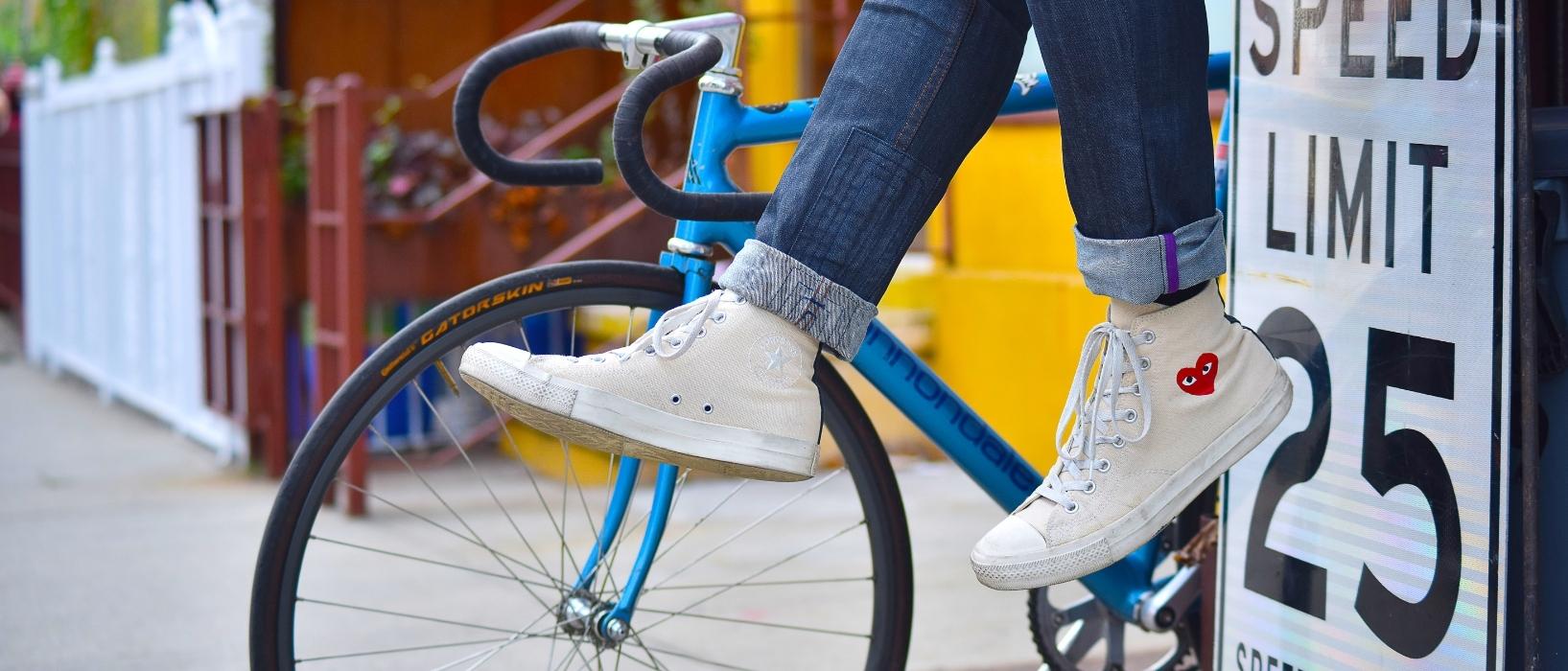
We wear shoes practically every day, but they come with a serious impact on the environment.
More than 25 billion shoes are produced every year, with each pair generating around 30 pounds of carbon emissions. That’s unusually high for a product that requires no electricity or sophisticated components. In fact, it’s the equivalent of leaving a 100-watt lightbulb on for an entire week.
While people tend to believe that the environmental impact of shoes comes from sourcing materials or disposal, more than two-thirds of the emissions actually arise from the manufacturing process.
A considerable part of this issue is the number of different materials the shoes are made from as well as the high number of steps involved in the process. For example, the outside may be made of leather, the sole of rubber, and pieces must be cut out, injected, and sewn back together.
Each of these steps requires a new type of machinery, and many need additional chemicals, too. Powering these machines, of course, consumes a tremendous amount of fossil fuels.
Since most shoes are made in developing countries to obtain cheap labour, coal is still the most commonly used energy source due to its low expense. However, it is also the ‘dirtiest’ fossil fuel, meaning it produces the highest amount of emissions, making the impact on the environment even worse.
It’s not just the emissions that damage the environment. Many chemicals, used for tanning, adhesives or as preservatives, are used to process different parts of the shoe. These can easily leak into the environment, particularly water through the factory discharge.
We’ve talked about before how leather production, in particular, is one of the most polluting industries in the world. The chemicals can harm local wildlife who consume the infected water and plants.
This also becomes an issue again during disposal. The vast majority of shoes end up in landfills, where the chemicals can leach from them and soak up into the surrounding soil and water. Again, this will harm surrounding wildlife and, as it makes its way up the food chain, could have detrimental health effects on us too.
The final aspect going into the high carbon footprint of shoes is transportation which, again, is higher because footwear manufacturing companies choose to operate in developing countries.
This means that ships, trucks, and planes are all needed to deliver the goods to your doorstep (or the shop you buy them from!). Of course, this in itself causes a massive increase in emissions.
To reduce your impact, try not to buy more sneakers than you need, and when the time does come to throw them out, why not donate instead?
Of course, when the time does come to buy a new pair, make sure you buy more sustainably.

One fantastic planet-friendly brand is Cariuma.
Cariuma makes sustainable sneakers that are good-looking and provide all-day comfort. They source the highest quality natural materials and manufacture their trainers in an environmentally friendly way with factory partners who observe fair and ethical labour practices.
That means there’s no need to choose between personal style and eco-friendliness!
Cariuma’s shoes are classic and vintage-inspired, letting their customers wear them through every season or, in their words “ an old-school aesthetic with new-school ethics”. They constantly source and craft greener innovations and develop new materials to create sneakers that are lightweight, durable and come with that perfect already broken-in fit.
Longevity and mindful consumption are also kept in mind, as the only true way to achieve authentic sustainability is by increasing the lifespan of the products. This way, you get quality over quantity and consume fewer, superior products.
You can shop Cariuma here.
Find out how Play It Green can help you or your business